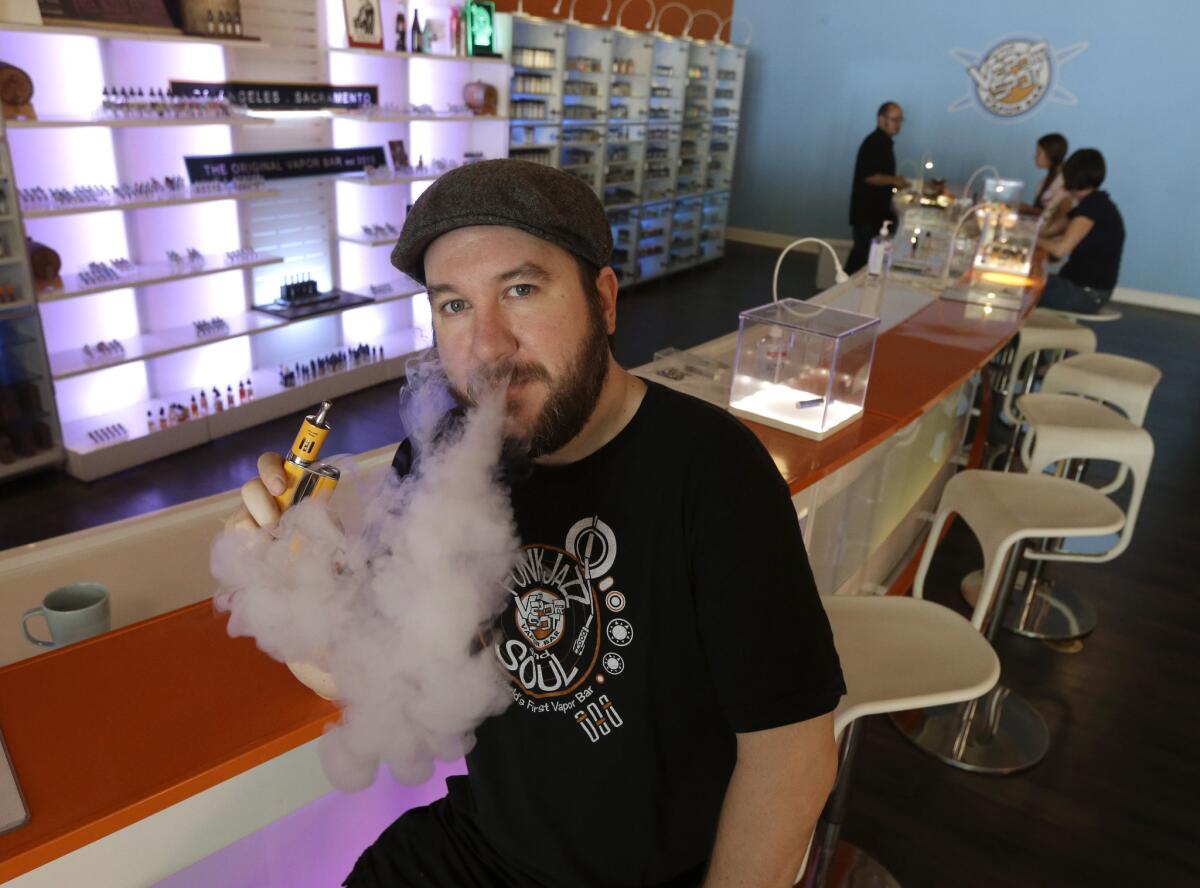California lawmakers fail to act on several anti-tobacco bills

John “JJ’ Jenkins, owner of the Vapor Spot exhales vapor from an e-cigarette while posing at his store in Sacramento, Calif. The Legislature failed to take up a bill to restrict vaping before it left for the year Friday.
- Share via
Reporting from Sacramento — California lawmakers failed to act by the end of the regular session Friday on a package of anti-tobacco bills, including measures what would have raised the smoking age to 21, restricted electronic cigarettes, and raised the tobacco tax by $2 per pack.
Officials said it is unlikely the bills will be heard again before next year.
Assembly Speaker Toni Atkins (D-San Diego) said the Legislature just ran out of time Friday, but she noted versions of the bills were introduced in a special session, which could extend into early next year, when the bills could be taken up again.
“It is special session so we do have more time to have the discussion,” Atkins said. “Tonight we just weren’t ready to continue to move forward on those [bills]. The good news about special session is that we have the time. So it isn’t that they won’t [come up], it just didn’t happen tonight.”
Assemblyman Jim Cooper (D-Elk Grove) carried one of the bills to regulate electronic cigarettes.
“It got vaporized,” Cooper said. “It’s very disappointing but that’s the process. I respect the process.”
Sen. Mark Leno (D-San Francisco), who also had a bill to regulate e-cigarettes, has complained that the tobacco industry generally has too much sway in the Capitol and particularly with members of the Assembly Governmental Organization Committee that tried to gut his bill this year.
“Unfortunately it’s not the first time the Assembly has disappointed us,” Leno said after the midnight adjournment. He said the votes were there to pass the bill but it was never brought up for a vote. “We must continue to be patient,” he said.
The Leno and Cooper bills would have banned electronic cigarettes in public places such as restaurants and theaters the same way regular smoking is restricted.
The measure was opposed by the vaping industry, which argued its devices run on vapor that is not as dangerous as burning tobacco.
Another bill would raise the legal age at which cigarettes can be purchased from 18 to 21 in an attempt to reduce smoking among teenagers.
The other bills would have allowed the state to charge cigarette distributors an annual fee instead of one-time levy, banned smoking at all schools, closed loopholes in smoke-free workplace laws, including hotel lobbies, small businesses and break rooms, and would have allowed counties to raise taxes on the tobacco industry.
More to Read
Sign up for Essential California
The most important California stories and recommendations in your inbox every morning.
You may occasionally receive promotional content from the Los Angeles Times.












